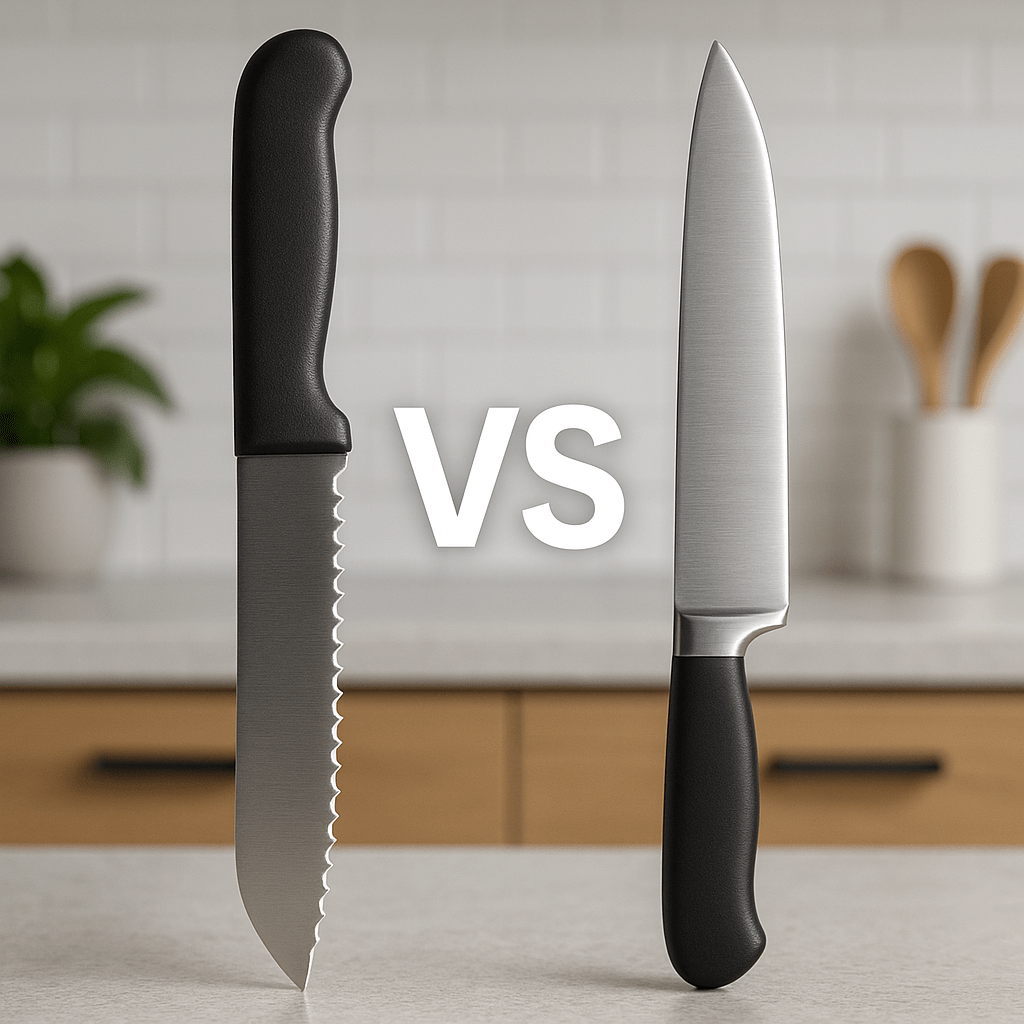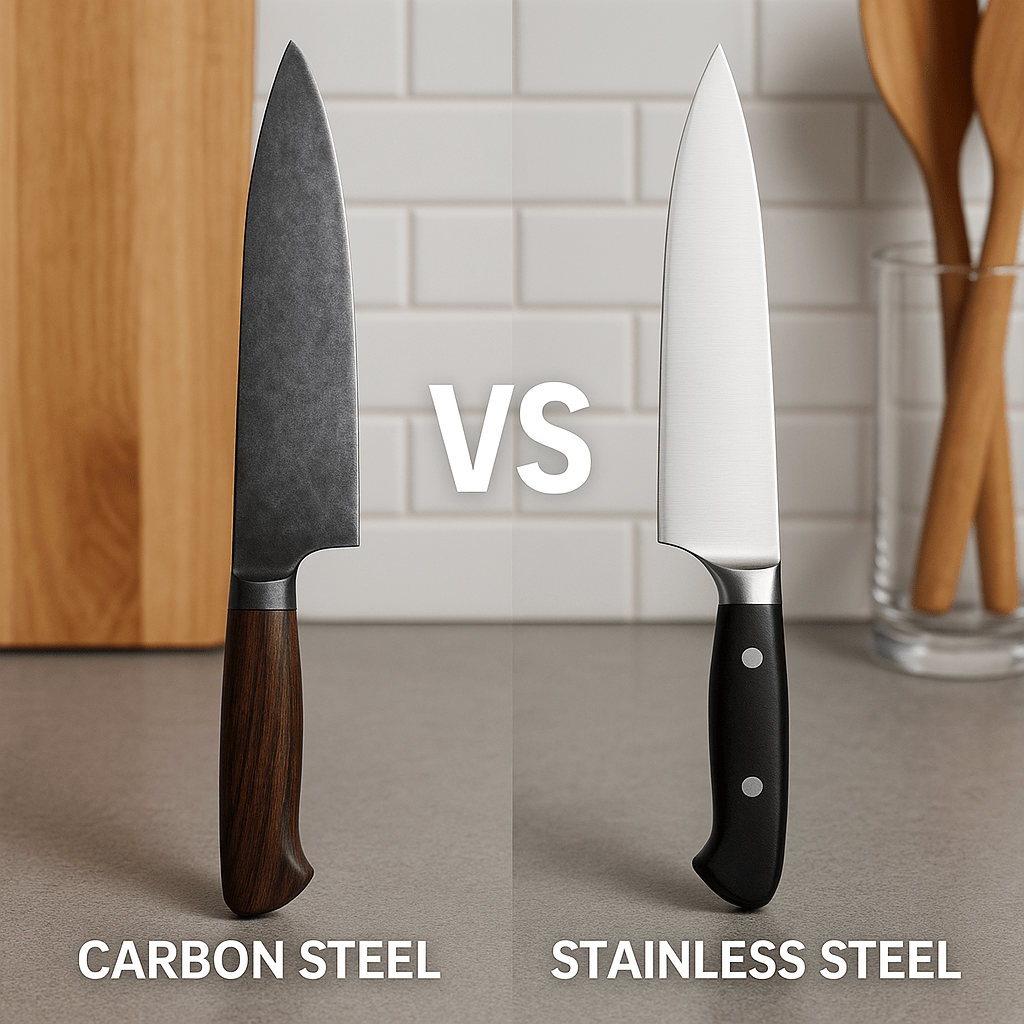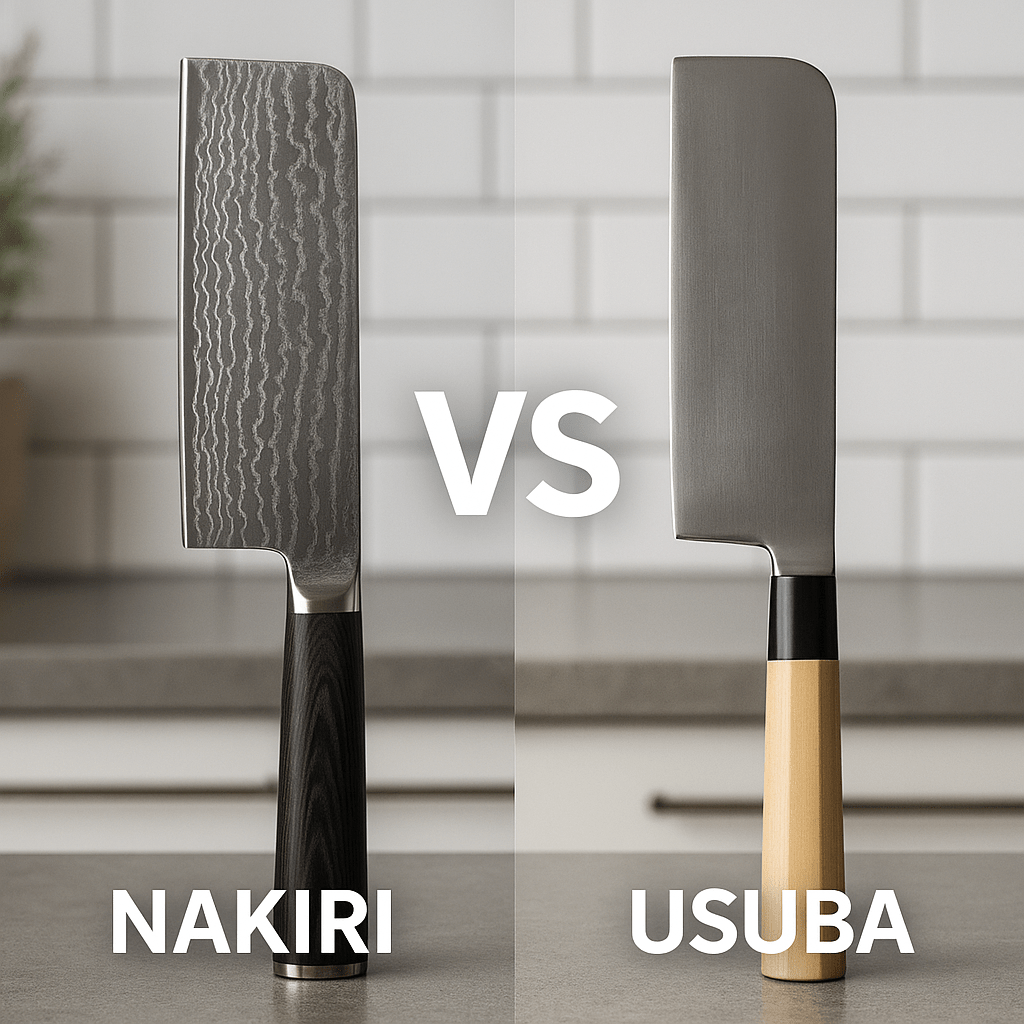
Serrated Knife vs Straight Edge – Which Works Better in the Kitchen?
Every cook has faced the question: should I use a serrated knife or a straight edge knife? While both are essential, they serve very different purposes. This article explores how each blade works, the foods they handle best, and the pros and cons of each, so you can make confident choices in your kitchen.
Understanding the Blade Designs
Serrated Knives
A serrated knife features a saw-like edge with pointed teeth. These teeth grip the surface of food, allowing the blade to cut through tough exteriors without crushing delicate interiors. Think of it as a mini saw adapted for the kitchen.
- Design: Jagged, scalloped, or saw-tooth edge.
- Motion: Back-and-forth sawing rather than direct pushing.
- Common length: 8"–10" bread knives, but smaller serrated knives exist for fruit and utility work.
Straight Edge Knives
Straight edge knives, sometimes called “plain edge” knives, have a smooth, razor-sharp blade. They excel in making clean, precise cuts, ideal for tasks where presentation and smooth slices matter.
- Design: Continuous smooth blade without teeth.
- Motion: Push cuts, rocking chops, or pull slices.
- Common length: Chef knives (8"), Santoku (7"), Paring knives (3–4").
Real-World Kitchen Uses
When to Use a Serrated Knife
- Bread & Pastries: The serrations saw through crusts without flattening the soft crumb.
- Tomatoes & Citrus: The teeth easily pierce slippery skins and cut cleanly through juicy flesh.
- Roasts with Crust: Works well for prime rib or pork roasts with crispy edges.
When to Use a Straight Edge Knife
- Meat & Fish: Clean slices that preserve texture and presentation.
- Vegetables: Precise chopping of onions, herbs, peppers, carrots, and more.
- Everyday Prep: From dicing garlic to slicing apples, a chef knife covers 90% of tasks.
Performance Comparison
| Feature | Serrated Knife | Straight Edge Knife |
|---|---|---|
| Cutting Motion | Sawing back-and-forth | Push cut, chop, or slice |
| Food Types | Bread, tomatoes, citrus, crusty roasts | Vegetables, meat, herbs, precise cuts |
| Slice Quality | Effective but slightly rough | Ultra-smooth and clean |
| Maintenance | Hard to sharpen, but stays useful longer | Easy to sharpen, requires frequent upkeep |
| Versatility | Specialized, limited use | Highly versatile, everyday essential |
Professional Chef Insights
Professional chefs often stress that you need both. A serrated bread knife is indispensable for pastries and produce, but it cannot replace a chef knife. Meanwhile, a chef knife handles 80–90% of kitchen prep but struggles with crusty bread or soft tomatoes.
“A serrated knife saves you frustration when slicing bread or tomatoes, but a sharp chef knife is your daily partner.” – Chef’s Kitchen Journal
Care & Maintenance Tips
Serrated Knives
- Sharpening requires special tools or professional service.
- Clean gently to avoid food buildup in the grooves.
- Store in a sheath or block to protect the teeth.
Straight Edge Knives
- Hone regularly to keep the edge aligned.
- Sharpen on a whetstone when dull.
- Hand wash and dry immediately to prevent corrosion.
Which Should You Choose?
- If you bake bread or cook lots of tomatoes: A serrated knife is essential.
- If you want one do-it-all knife: Start with a straight edge chef knife.
- Best of both worlds: Keep both—use a serrated knife for specialized cutting and a chef knife for everything else.
Weekly Deal 🔥
Want the perfect balance? Our OSERM Knife Sets include both serrated bread knives and versatile chef knives—giving you the right tool for every task.
Shop OSERM Damascus Steel Knifes Now →
You Might Also Like
- Chef Knife vs Santoku Knife – Which Should You Choose?
- Damascus Knife vs Stainless Steel Knife – Pros & Cons
- Knife Care 101 – How to Make Your Knives Last Longer
Tags: serrated knife vs straight edge, bread knife vs chef knife, kitchen knife comparison, OSERM






